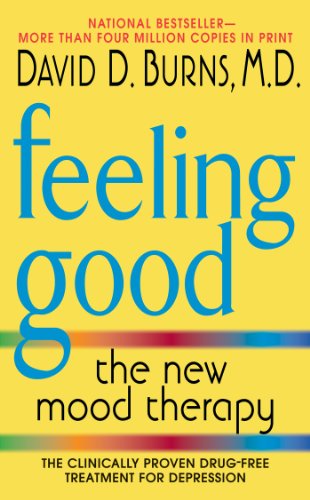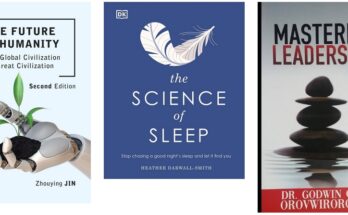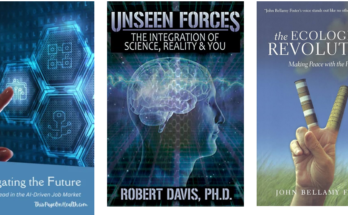


The Upside of Stress" by Kelly McGonigal vs The 7 Spiritual Laws of Success" by Deepak Chopra vs Feeling Good: The New Mood Therapy" by David D. Burns
Comparison of “The Upside of Stress” by Kelly McGonigal, “The 7 Spiritual Laws of Success” by Deepak Chopra, and “Feeling Good: The New Mood Therapy” by David D. Burns
Introduction
This comparative analysis explores three seminal books from the domains of psychology, spirituality, and self-help. “The Upside of Stress” by Kelly McGonigal challenges conventional views on stress and provides strategies to harness it for positive outcomes. “The 7 Spiritual Laws of Success” by Deepak Chopra offers a spiritual framework for achieving personal and professional fulfillment. “Feeling Good: The New Mood Therapy” by David D. Burns delves into cognitive-behavioral techniques to improve mental health and combat depression.
Table Comparison
| Criteria | The Upside of Stress | The 7 Spiritual Laws of Success | Feeling Good: The New Mood Therapy |
|---|---|---|---|
| Author | Kelly McGonigal | Deepak Chopra | David D. Burns |
| Publication Year | 2015 | 1994 | 1980 |
| Primary Focus | Reframing stress as a positive force | Achieving success through spiritual principles | Cognitive-behavioral techniques for mental health |
| Core Concept | Stress can enhance performance and well-being | Success is achieved through alignment with spiritual laws | Negative thoughts can be transformed to improve mood |
| Key Methodologies | Mindset shifts, practical exercises | Spiritual practices, philosophical insights | Cognitive restructuring, practical exercises |
| Target Audience | Individuals facing stress | Individuals seeking holistic success | Individuals dealing with depression and anxiety |
| Applications | Stress management, personal growth | Personal development, professional success | Mental health improvement, therapy |
| Strengths | Evidence-based, practical | Holistic approach, spiritual depth | Scientifically grounded, widely applicable |
| Weaknesses | May conflict with deeply ingrained beliefs about stress | Abstract concepts may not appeal to everyone | Some techniques may feel repetitive |
| Unique Selling Point | Turns conventional wisdom on stress upside down | Combines spirituality with practical success strategies | Effective self-help techniques for combating depression |
| Overall Impact | Empowers individuals to harness stress for good | Provides a spiritual roadmap to success | Offers practical tools for improving mental well-being |
Detailed Comparison
1. The Upside of Stress
Key Concepts and Themes
- Positive Reframing of Stress: Kelly McGonigal presents the idea that stress, commonly perceived as harmful, can actually be beneficial if approached with the right mindset.
- Mindset Shifts: The book emphasizes that how we perceive stress influences its impact on our health and performance. Viewing stress as a challenge rather than a threat can lead to better outcomes.
- Three Key Ideas: The three main principles include embracing stress, recognizing its benefits, and leveraging it for personal growth and resilience.
Methodologies and Approach
- Scientific Research: McGonigal supports her arguments with scientific studies from psychology and neuroscience, making her claims credible and evidence-based.
- Practical Exercises: The book includes exercises and practices designed to help readers shift their mindset about stress and harness it for positive effects.
- Real-Life Examples: Stories and case studies illustrate how individuals have successfully applied these concepts to improve their lives.
Applications
- Stress Management: Techniques for transforming stress into a positive force in both personal and professional settings.
- Personal Growth: Strategies for using stress as a catalyst for personal development and resilience building.
- Health and Well-Being: Insights into how a positive stress mindset can improve physical and mental health.
Strengths and Weaknesses
- Strengths: The book is practical, evidence-based, and offers a refreshing perspective on a common issue.
- Weaknesses: Some readers may struggle to adopt the new mindset if they have deeply ingrained negative beliefs about stress.
2. The 7 Spiritual Laws of Success
Key Concepts and Themes
- Spiritual Laws: Deepak Chopra outlines seven spiritual laws that he believes are essential for achieving true success: the Law of Pure Potentiality, the Law of Giving, the Law of Karma, the Law of Least Effort, the Law of Intention and Desire, the Law of Detachment, and the Law of Dharma.
- Holistic Success: The book defines success not just in terms of material wealth but as a holistic concept that includes spiritual, emotional, and relational well-being.
- Integration of Spirituality and Practicality: Chopra emphasizes that spiritual principles can and should be integrated into daily life and professional practices.
Methodologies and Approach
- Philosophical Insights: The book blends philosophical insights from various spiritual traditions with practical advice.
- Spiritual Practices: Chopra suggests specific practices, such as meditation and mindfulness, to help readers align with these laws.
- Real-World Examples: The book includes examples of individuals who have achieved success by following these spiritual principles.
Applications
- Personal Development: Strategies for achieving inner peace, fulfillment, and holistic success.
- Professional Success: Insights into how spiritual principles can enhance professional life and lead to sustainable success.
- Relational Well-Being: Guidance on improving relationships through spiritual understanding and practices.
Strengths and Weaknesses
- Strengths: The book offers a unique blend of spirituality and practicality, providing a holistic approach to success.
- Weaknesses: Some readers may find the concepts too abstract or not directly applicable to their daily lives.
3. Feeling Good: The New Mood Therapy
Key Concepts and Themes
- Cognitive-Behavioral Therapy (CBT): David D. Burns introduces CBT techniques to help readers identify and change negative thought patterns that contribute to depression and anxiety.
- Mood Improvement: The book emphasizes that by changing one’s thoughts, it is possible to improve mood and overall mental health.
- Practical Techniques: Burns provides specific exercises and techniques for challenging and altering negative thoughts.
Methodologies and Approach
- Scientifically Grounded: The book is based on cognitive-behavioral therapy, a well-established and scientifically validated approach to mental health.
- Practical Exercises: Burns includes numerous exercises and worksheets to help readers apply the concepts and techniques in their own lives.
- Case Studies: Real-life examples and case studies illustrate how the techniques have helped others overcome depression and anxiety.
Applications
- Mental Health Improvement: Tools and techniques for improving mental health and combating depression and anxiety.
- Therapeutic Use: Useful for therapists and counselors working with clients who suffer from mood disorders.
- Self-Help: Provides readers with practical tools to manage their own mental health.
Strengths and Weaknesses
- Strengths: The book is practical, scientifically grounded, and offers effective tools for mental health improvement.
- Weaknesses: Some readers may find the techniques repetitive or struggle with the self-help format.
Conclusion
These three books each offer valuable insights and practical strategies in their respective fields. “The Upside of Stress” provides a revolutionary perspective on stress, encouraging readers to harness it for positive outcomes. “The 7 Spiritual Laws of Success” offers a spiritual framework for achieving holistic success, blending deep philosophical insights with practical advice. “Feeling Good: The New Mood Therapy” presents effective cognitive-behavioral techniques for improving mental health and combating depression.
Despite their different focuses, each book emphasizes the importance of practical application and provides actionable strategies that readers can implement to improve their lives. Whether you are looking to reframe your experience of stress, achieve success through spiritual principles, or improve your mental health, these books offer valuable guidance and insights.



